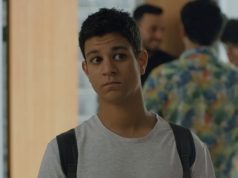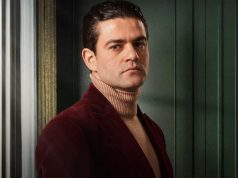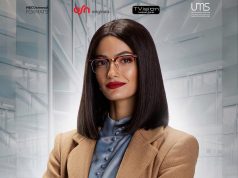Wearing two hats, Amir Ramses is both writer and director of the selected Egyptian film entry for CIFF (Cairo International Film Festival 2020). Curfew has an intriguing storyline and boasts a star-studded cast, setting it up to be one of this year’s ‘must sees’. We tore this talented man away from his other role, that of the artistic director of El Gouna Film Festival, to learn more about his film.
What was your immediate feeling when you heard that Curfew had been selected for CIFF 2020?
Well, I was really happy when I received the invitation from CIFF. This is one of the most prestigious festivals in Egypt. It is a very good start for the film’s journey for me. My first feature film had its beginnings at CIFF many years ago in 2006, and I’ve always been attached to this festival since my days as a student filmmaker.

The screenings, the panels, the activities; I think somehow, it played a big role in my development, and I’m happy to have my film screen in its international competition at the start of its journey.
What inspired you to create this film?
Curfew is a film about secrets. I was always intrigued by family secrets, things you hide protect others. How far you’re willing to go to hide secrets from someone and the sacrifices you’ll make: are they really worth it or not? These are the questions that were evolving in my mind as I worked on the script.
This family drama is set in a single day where a mother and daughter are locked together somewhere as a hidden battle rages, with everyone trying to fulfill their agenda. The mother is trying to keep her secrets shut forever, while the daughter is desperately seeking answers in search of resolution.
It’s a film about acceptance. It’s a film about forgiveness. It’s a film about being able to tolerate, accept, and forgive the other, even if you’re not able to know the reasons behind what they did. It’s a film about trust. That’s how the film
started for me; then naturally I needed to frame it, so I gave it a sense of claustrophobia. I wanted to lock the characters somewhere where their questions would be hanging; I wanted to feel that the house was a real prison; that’s why I chose the 2013 curfew as a background for the film.
Do you feel that it touches on sensitivities specific to Egyptian culture or is it on a more universal human level?
I hate messages in films; my film doesn’t have a message in the sense of like, a lesson learned. But, my film, like my previous line of work, is about acceptance, it’s about tolerance, it’s about being able to trust and accept someone who is different from you, who has different motives, who had diffe
rent perspectives, learning to trust them through your feelings and not by your brains. Just like the themes evolved many times in my previous work: Jews of Egypt and Cairo Time.
You had a stellar cast with both seasoned and new actors to work with. How was the rapport on set?
Working with that caliber of artists in the film has been a real blessing. I’ve been lucky to have really talented actors and actresses in the film. I was so happy, it was was an enchanting experience to have the highly intelligent and delicate Elham Shahin in front of the camera, who formed a bond during shooting with Amina Khalil, who is also one of the most talented actresses of her generation. I think even Kamel El Basha, who comes from a different culture, a different way of making films, was brilliant.
I think one way or the other, we all adapted; we were all working under the same rhythm, it was a very immersive experience for us. And basically, I needed that specifically for the film; it’s all about the acting, it’s all about the energy the actors generate on set. You can make all the good frames, you can create all the good lighting, you can develop all the good style you want. But if you don’t have great acting in this film, you don’t have a film. It’s a character-based drama after all.
What do you have coming up in the pipeline?
My next project is actually a comedy, a very different kind of comedy, a modern one written by the talented screenwriter Haitham Dabbour; who previously wrote films like Photocopy, and Gunshot. Right now, we’re in the phase of finishing the second draft of the film, of the script, and then I hope to start the preparation, then I plan to start the pre-production of the film as soon as possible.





